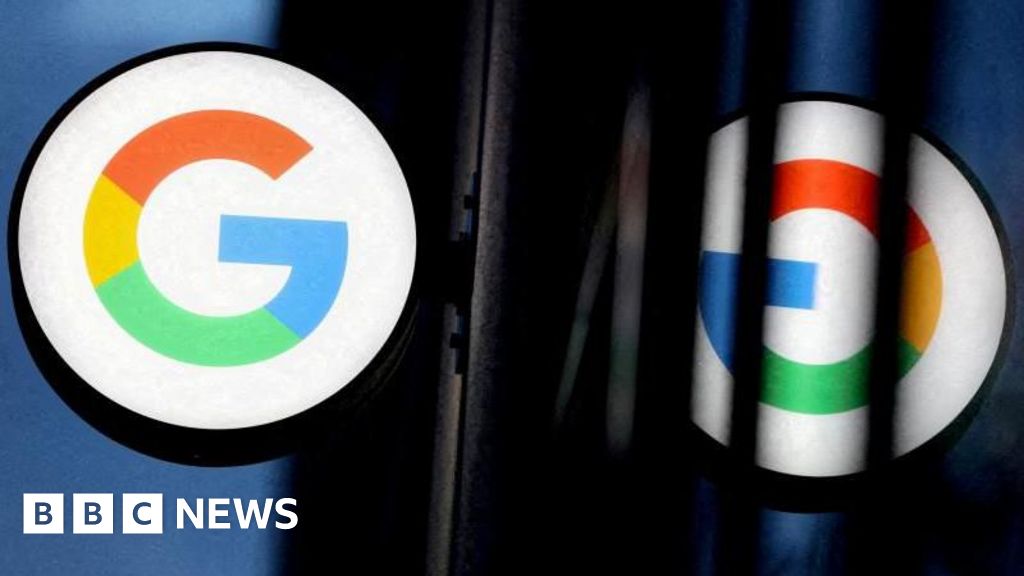- cross-posted to:
- android@lemdro.id
- cross-posted to:
- android@lemdro.id
I hate Google as much as anybody else, but that Google has been ordered to open up when they already allow side loading, and Apple is apparently all good, is all you need to know this whole system is a joke.
Google is big enough to be considered a monopoly in mobile phone operating systems. Play Store is technically a separate service / business which enjoys unfair advantage of being installed by default. I think this approach might be good because it’s better for user experience (unlike EU web browser thing for example) and has a good shot at postiviely affecting power balance between app developers and platform owner.
I’m curious how this will play out. Apple should be next obviously.
Apple was first. And the courts ruled it no problem.
I meant “next big corpo beaten into submission by regulators”. I don’t think Epic gave up on them yet.
I wouldn’t say Google has been “beaten into submission”. They still interweave their crap services into every Android phone with no ability to remove or disable them, couple their apps with an intrusive, privacy violating, system degrading backend with special rules for its own apps versus everybody else… even force the default system web browser to be an unremovable Chrome installation, and not even a peep from regulators that any of this might be anti-competitive.
No company has been properly beaten into submission since Ma Bell. Even the big Microsoft browser decision in the 90s turned out to be a joke - they’re right back to doing the same thing with impunity.
Even if things go well it will be one thing at a time probably. This news doesn’t sound big because Google is so big but for businesses dependent on Google infrastructure this is a major win, no?
My perspective might be skewed since I live in EU and we mostly won right to our data and privacy.
I appreciate you guys fighting the good fight.
At least SOMEONE’S on it.
It’s because Google is using their market dominance to essentially force OEMs to do what Google wants them to do.
You can’t have a successful Android device without the Play store, or access to any Google apps. Shit, for lots of apps, they will be straight up broken without Play Services installed, or notifications won’t work.
The market reality is that you have to have the play store. Google knows this, so they attach all kinds of extra requirements on OEMs to push Google services and tracking.
Apple doesn’t do this. Yes, Apple’s system is more locked down than Google’s (by far), but Apple is not using their market position to force anything on anybody or any OEM. Google is. Apple has not forced Samsung, OnePlus, Motorola, Sony, etc to do anything. They are only doing things of their own accord, on their own devices.
What Apple is doing is the same as what the games consoles do. You buy a Sony console, it has Sony software, Sony’s storefront, Sony-sanctioned games. It’s an ecosystem they’re putting on their own product, as opposed to Google strong-arming other companies into pushing Google’s ecosystem, because Google knows they have no realistic alternative. That’s why one is abuse of market dominance and the other isn’t.
This is the clearest and most sensible explanation of the situation, but I’m still not sure what’s meant by “opening the app store”. The reality is apps can be sideloaded and distributed freely on Android, even unrooted. Sure, Google requires OEMs to push Google services and tracking, and that’s evil and horrible and nasty, but do they actually force that onto app developers as well?
Perhaps they mean allowing android OEMs to ship with the play store without having to agree to all the other Google requirements.
Edit: Sorry! I misread your comment at first. Yeah, now that you say that, that makes the most sense.
But from the standpoint of anti-competitivity and Android vs iOS with Apple…
One’s behavior is denying access to their app store without agreeing to a set of device restrictions, but everything on the app store is available without the app store at developer discretion.
The other is an app store which MUST be installed, and is in fact the ONLY way to get software for the device.
One is CLEARLY more anti-competitive than the other, and yet the one that’s LESS problematic is the one that gets court action. It’s a joke.
There’s that nuance again. Seems to not be very popular around here. Good point though. Well said.
deleted by creator
Come on, man, my comment isn’t that long. Just read it.
deleted by creator
Repeating my own comment back to me in a way that doesn’t even make sense doesn’t make you witty, it makes you look like someone who doesn’t know how to interract with people like an adult.
You never addressed my comment at all. Apple isn’t abusing their dominant market position by putting what they want on their own phones.
Google is abusing their market position by forcing other OEMs to do what Google wants, knowing they have no other choice.
Do you understand now?
If you want Apple to be punished, write some new laws, because they aren’t breaking the one Google is.
deleted by creator
I really don’t know how you aren’t grasping this.
Apple isn’t forcing anybody to do anything, because they make their own device. (iPhones are made by Apple).
Google is forcing OEMs to do all sorts of things, because they have no choice but to use Android/the play store. (Other phones, e.g. Samsung’s Galaxy S series, aren’t made by Google).
Do you understand? I’m not sure I can make this any more simple. What’s going on in your head that’s not letting you understand this?
Apple isn’t on third party hardware.
They aren’t controlling access to software on other manufacturers devices like Google is.
That’s not actually true though.
Android is open source and many devices, mostly Chinese products, launch with custom Android builds completely free of Google services. This is not a Google constraint - manufacturers CHOOSE to use Android builds that use Google’s services. Creating your own build simply stops you from integrating Google’s services into the OS, which is actually a PLUS if you ask me.
Even if they WERE requiring it, that would have nothing to do with end user store front installation, which is already something you can do, as shown by the 2 non-Google app stores I have installed on my phone.
Again… I’m not defending Google as some kind of good company here. I’m simply stating there is no way to make an anti-competitivity argument against Google in mobile that doesn’t apply at least as much to Apple. This is a nonsensical double-standard.
Because of their market dominance. That’s what antitrust laws are about.
The fact that it’s not just their own hardware completely changes the legal arguments in play.
deleted by creator
https://source.android.com/license
https://en.wikipedia.org/wiki/Android_(operating_system)
“At its core, the operating system is known as the Android Open Source Project (AOSP)[5] and is free and open-source software (FOSS) primarily licensed under the Apache License. However, most devices run on the proprietary Android version developed by Google, which ships with additional proprietary closed-source software pre-installed,[6] most notably Google Mobile Services (GMS),[7] which includes core apps such as Google Chrome, the digital distribution platform Google Play, and the associated Google Play Services development platform. Firebase Cloud Messaging is used for push notifications. While AOSP is free, the “Android” name and logo are trademarks of Google, which imposes standards to restrict the use of Android branding by “uncertified” devices outside their ecosystem.[8][9]”
Android itself DOES NOT require ANY concessions of ANY kind to Google.
Android itself DOES NOT require ANY concessions of ANY kind to Google. Maybe “opening the app store” means making Google’s services available without requiring those concessions to Google, in which case, that both makes sense and is a great idea.
deleted by creator
Legally, yes. Dictating the rules for software on your own hardware is entirely legal, and extremely common.
Using your market position to dictate a cabal of other manufacturers’ rules on their hardware is anticompetitive. They’re using their market dominance with the play store to mandate a variety of hardware decisions and software decisions.
deleted by creator
That’s incorrect. There are multiple requirements, both hardware and software, to be able to ship with the play store. That’s the monopoly they’re abusing, and that’s what Epic is suing for.
deleted by creator
One example (of many) where their requirements have directly impacted the growth of a market is refresh rate. Android ereaders are excellent devices, but because of Google’s arbitrary limitations, devices until recently (when the technology they impeded with their monopoly developed far enough to meet that restriction) were forced to require users to jump through multiple extremely convoluted hoops to enable the play store.
This made them almost entirely inaccessible to normal end users and almost certainly played a huge role in the availability of options. That’s textbook anticompetitive.
It’s not the only restriction, just the first to come to mind.
Google has also made unwelcome moves recently indicating they might crack down on sodeloaded app stores. So I’m glad this ruling happened.
good. now do apple, microsoft, amazon, meta…
First Apple then Google. On Android you can at least side-load properly
Do PlayStation, Xbox, and Nintendo next.
Does this mean Aurorastore will be useful again?
when did it stop being useful?
A couple years ago, I used Aurora to install paid games on my Shield TV. Games that Google Play doesn’t normally allow on the Shield (like the PS2 era GTA games). Well Google changed something, and it’s no longer possible to download and install purchased apps or games through Aurora, even if you log into your Google account. This sucks, because I formatted my Shield TV expecting be able to reinstall these games, but it doesn’t work anymore.
Yeah, Aurora is still good, but Google has been crippling it.
Is it the pro or the tube shield the tube is 32 bit only and most apps and games have moved to 64 bit only so the pro would be needed but I can still install paid apps on aurora on my phone just fine.
Aurora stores GitHub page states under the Limitation section that it is not able to install, or update paid apps.
Provides only base minimum features Can not download or update paid apps.
Odd I used it to install GTA: SA definitive edition purchased on the play store website then installed and updated via Aurora still works just updated it recently too.
It might be the kind of thing that works sometimes in some situations, but isn’t officially supported.
Either way, it used to work for my ShieldTV Pro, but it doesn’t work anymore. Doesn’t matter how many devices I try to spoof, or how many times I reinstall the app, or how many times I re-login, etc.
Makes me really sad that I formatted the Shield TV. Oh well.
OH SHIIIIIIIIIIIIIIIII








